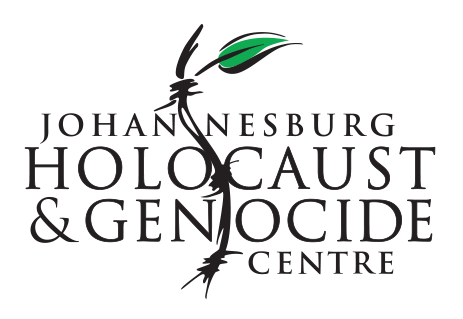The event is on 25 September at 8pm SAST
Join us for the next instalment in the webinar series Lessons in Resilience from the Holocaust and Genocide with Asya Darbinyan
The Remarkable Resilience of the Armenian Genocide Refugees
The Armenian genocide—orchestrated and systematically implemented by the Ottoman government against its Armenian subjects under the cover of the First World War—was a disaster that inflicted tremendous suffering and pain upon a people. The genocide took over 1.5 million lives, triggered huge population movements, and left hundreds of thousands of Armenians, as well as Assyrians and Greeks, without home and hope. In her talk, Dr. Darbinyan reflects on the successful attempt of refugee-survivors, including women and children, to self-organise and help each other during the Armenian Genocide. The tremendous operations of Armenian volunteers to liberate abducted Armenian women and children from captivity, the willingness and strength of exhausted and famished children to overcome endless obstacles and even find their way back home, the efforts of refugees in classrooms and workshops to teach and train children survivors are testimony to the remarkable resilience in a time of catastrophe. The decisions made and the actions taken by those individuals constitute critical examples of agency, self-help, and self-organisation.
Dr. Asya Darbinyan is the Executive Director of Chhange (Centre for Holocaust, Human Rights & Genocide Education) at Brookdale Community College in Lincroft, NJ. She earned her Ph.D. in History from the Strassler Centre for Holocaust and Genocide Studies at Clark University, Worcester, MA. Darbinyan’s research and teaching expertise stand at the intersection of genocide, refugees, and humanitarian interventions, with a focus on the agency and actions of refugees in addressing their suffering and plight. Prior to joining Chhange, Darbinyan worked as a Visiting Professor at the Strassler Centre at Clark, where she taught courses on Genocide and Women, the Armenian Genocide, and the History of Genocide. Darbinyan has also served as a Postdoctoral Scholar at the Martin-Springer Institute at Northern Arizona University (NAU), and a Fellow in Holocaust and Genocide Studies at Stockton University. She was the Deputy Director of the Armenian Genocide Museum-Institute in Yerevan, Armenia, prior to pursuing her doctoral degree in the USA.
Dr. Darbinyan will be in conversation with Tali Nates, the founder and director of the Johannesburg Holocaust & Genocide Centre (JHGC) and Chair of the South African Holocaust & Genocide Foundation (SAHGF). She is a historian who lectures internationally on Holocaust and genocide education, memory, reconciliation, and human rights. Born to a family of Holocaust survivors, her father and uncle were saved by Oskar Schindler. Tali has been involved in the creation and production of dozens of documentary films, published many articles and contributed chapters to different books among them God, Faith & Identity from the Ashes: Reflections of Children and Grandchildren of Holocaust Survivors (2015), Remembering The Holocaust in Educational Settings (2018), Conceptualising Mass Violence, Representations, Recollections, and Reinterpretations (2021) and The Routledge Handbook of Memory Activism (2023). South Africa by the Mail & Guardian newspaper and won many awards including the Kia Community Service Award (South Africa, 2015), the Gratias Agit Award (2020, Czech Republic), the Austrian Holocaust Memorial Award (2021), the Goethe Medal (2022, Germany), the US Secretary of State’s International Religious Freedom Award (2023), and the International Network of Genocide Scholars (INoGS) 2024 Impact Award.

